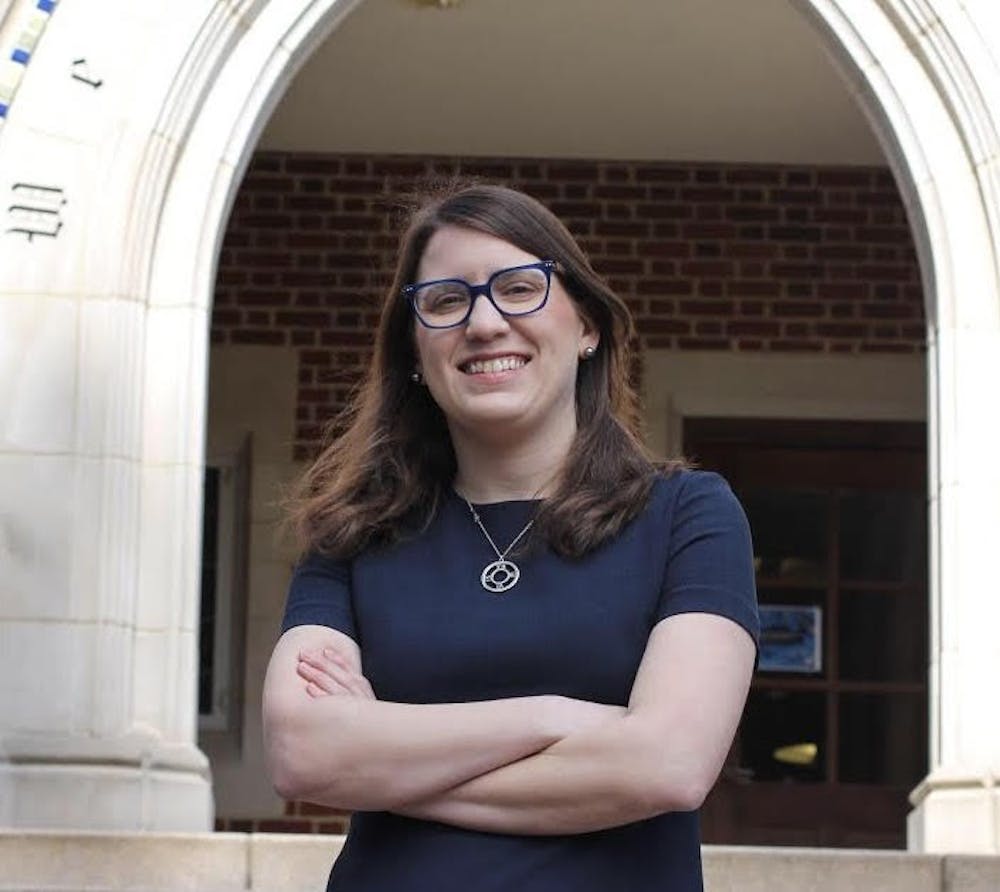University of Richmond’s Lauren Tilton, assistant professor of digital humanities in the rhetoric and communication studies department, received a $35,000 fellowship in January to develop a digital book that will map out oral histories collected during the Great Depression.
Tilton received the fellowship from the National Endowment for the Humanities and the Andrew W. Mellon Foundation. She will co-author the digital book with Taylor Arnold, assistant professor of statistics, and Courtney Rivard, director of the Digital Literacy and Communications Lab at the University of North Carolina at Chapel Hill.
Tilton defined an oral history as when writers speak to working-class people and record their life stories as a method of understanding history.
At the time of the Great Depression, writers employed under a New Deal program known as the Federal Writers' Project collected oral histories from working-class people across the nation.
The project was “a way to better understand the conditions that people are living in, particularly to understand the effects of the Great Depression,” Tilton said.
Tilton's digital book will tell the story of the project, including how it came to be, who was involved and how the federal government supported it.
It will do so in an unconventional way. The book will map out over 1,200 interviews so users can see where they took place across the country. Additionally, users will be able to see who conducted which interviews, as well as filter interviewers and interviewees by race and gender.
“We’re trying to model a different form of scholarship: one that’s collaborative and one that’s interactive and one that’s open-access,” Tilton said. She said she had hoped that the book would tell a history that both scholars and the general public would be interested in.
Although there was nothing wrong with traditional forms of scholarship, there was a whole world of technology nowadays that allowed historians to switch it up, Tilton said.
Experimenting with different mediums is nothing new for Tilton.
Junior Valerie Szalanczy, who took a first-year seminar with Tilton, described the classroom environment.
“She did really well with integrating different mediums into the class and filtering it to a level of understanding for people that were new to the subject," Szalanczy said.
Enjoy what you're reading?
Signup for our newsletter
Nicole Maurantonio, chair of the rhetoric and communication studies department, also praised Tilton’s experimental methods.
“Dr. Tilton’s project is a really phenomenal example of her innovative digital-history work,” Maurantonio said. “I think it shows how she expands the ways we think about archival materials.”
Tilton is also a research fellow at the Digital Scholarship Lab. She has taught at UR since 2016.
Contact news writer Alan Clancy at alan.clancy@richmond.edu.
Support independent student media
You can make a tax-deductible donation by clicking the button below, which takes you to our secure PayPal account. The page is set up to receive contributions in whatever amount you designate. We look forward to using the money we raise to further our mission of providing honest and accurate information to students, faculty, staff, alumni and others in the general public.
Donate Now



